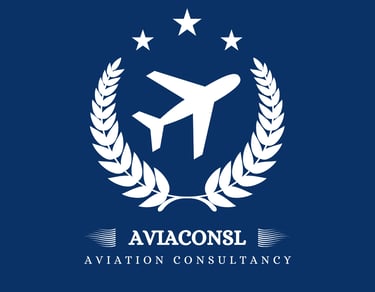Jurisdiction in Private Aircraft Lease Disputes
Where Should Conflicts Be Resolved?
Private aircraft leasing is a complex commercial and legal process that involves intertwined obligations and responsibilities among various parties. When disputes arise between aircraft owners, operators, and lessees, a critical legal question emerges: where should these disputes be resolved? Determining the jurisdiction for any dispute is not merely a procedural formality but a decisive factor that affects the speed of resolution, litigation costs, and even the likelihood of a party successfully asserting its claims. Due to the international nature of aircraft leasing agreements, these disputes can fall under multiple legal systems, further complicating the cases at hand.
International and local laws do not provide a uniform answer to the issue of jurisdiction, as it primarily depends on the terms of the contract signed between the parties. Some agreements explicitly designate a specific country’s courts to handle any disputes, while others mandate arbitration as the exclusive means of resolution. In both cases, one party may find itself at a disadvantage, particularly if it is forced to engage in legal proceedings in a foreign jurisdiction or under an unfamiliar legal system.
In the United Arab Emirates, aviation-related disputes generally fall under local laws, but international contracts may stipulate arbitration or litigation in foreign courts. In such cases, operators and lessees must be fully aware of the enforceability of these provisions and whether they can challenge or amend them. It is well known that some lessors impose mandatory jurisdiction clauses requiring lessees to submit to courts such as those in London or New York, which often favor lessors over lessees in legal rulings.
One of the most significant legal challenges faced by lessees is that some contracts include mandatory arbitration clauses, preventing parties from resorting to local courts and compelling them to resolve disputes through private arbitration. While arbitration can be an effective way to settle disputes quickly, it may also pose a burden on the weaker party in the contract, as arbitration is often expensive and requires the appointment of specialized arbitrators with high fees. Additionally, some arbitration panels apply standards and procedures that favor the stronger party, potentially leading to biased decisions.
This issue is evident in certain cases where disputes arose between private aircraft lessees and major leasing companies. For instance, in a case adjudicated by the London Court of International Arbitration (LCIA), a lessee claimed that the aircraft they leased failed to meet required safety standards, yet they were compelled to undergo arbitration in a jurisdiction unfamiliar to them. This placed them at a disadvantage against the leasing company, which had strategically chosen that jurisdiction for its legal advantages. Cases like this highlight the importance of thoroughly reviewing jurisdiction clauses in contracts before signing them and avoiding agreements that make fair legal proceedings impossible.
The legal framework governing jurisdiction in aviation disputes primarily depends on several key factors, including the aircraft's registration location, the contract execution location, and the nationalities of the contracting parties. For example, if an aircraft is registered in the UAE and a lease contract is executed in Dubai between an Emirati party and a foreign entity, UAE laws may apply unless the contract states otherwise. In cross-border aircraft leasing, jurisdictional differences between countries can complicate disputes, as multiple courts may claim the right to hear the case, leading to a "forum shopping" scenario where parties compete to select the most favorable legal venue.
The best approach for operators and lessees is to negotiate jurisdiction clauses in advance to ensure that any potential disputes will be handled by a fair and balanced court or arbitration panel. It is also advisable to seek contracts that allow for recourse to national courts in cases where arbitration fails or if one party is found to have exploited jurisdiction clauses in an abusive manner.
It is essential for lessees and operators to recognize that some jurisdictions impose restrictions on recognizing foreign arbitration awards, potentially offering them an opportunity to challenge unfavorable rulings. For example, courts in some Middle Eastern countries, including the UAE, do not automatically recognize all foreign arbitration decisions if they contradict the country's public policy. This is particularly crucial for clients from the Middle East dealing with major lessors that attempt to impose foreign jurisdiction clauses on them.
Ultimately, jurisdiction is not merely a minor detail in an aircraft lease agreement—it is a critical element that can shape the entire course of a dispute. Accepting an unfavorable jurisdiction clause may lead to an unequal legal battle, where the weaker party faces excessive legal costs or must navigate an unfamiliar legal system. Therefore, ensuring that jurisdiction clauses are carefully drafted, negotiated, and balanced is one of the most important precautionary measures that operators and lessees should take before entering into any aircraft leasing agreement.




